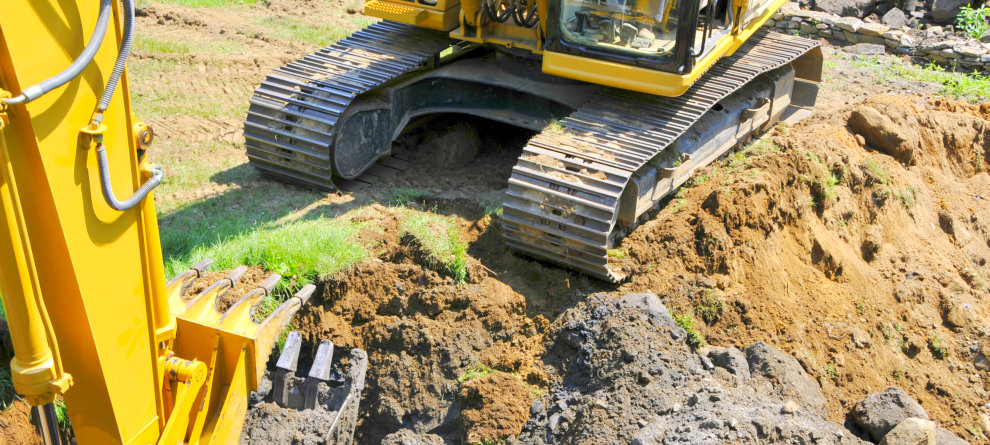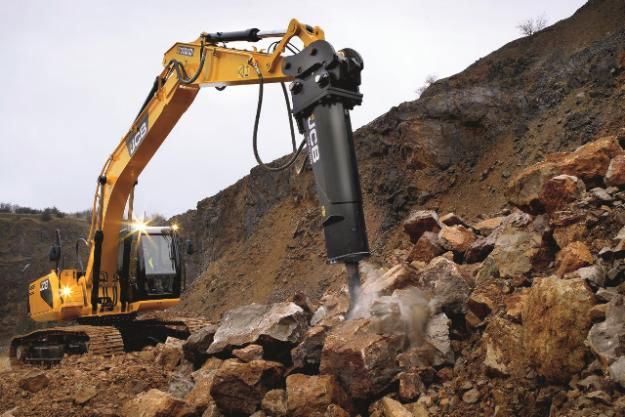Excavating Ohio - Leading Excavation Contractors for Ohio Projects
Excavating Ohio - Leading Excavation Contractors for Ohio Projects
Blog Article
Comprehensive Excavation Methods: Grasping the Fundamentals for Success
In the world of construction and civil engineering, the value of effective excavation strategies can not be overemphasized. The mindful planning, accurate implementation, and thorough attention to detail needed in excavation jobs require a comprehensive technique that incorporates numerous fundamental aspects. From initial soil analysis to the application of safety and security actions and regular progress monitoring, mastering these core aspects is necessary for attaining success in any kind of excavation undertaking. Nevertheless, real mastery exists not simply in comprehending these basics yet in effortlessly incorporating them to browse the intricacies of excavation jobs with finesse.
Recognizing Excavation Project Planning

The initial phase of any kind of excavation project is the planning stage, where vital choices are made that can significantly impact the result of the job. Recognizing the project scope, timeline, and budget constraints is important for producing a thorough excavation strategy that makes certain the task's success.
One trick facet of excavation task preparation is the growth of a detailed timeline that outlines the sequence of milestones, tasks, and target dates. This timeline functions as a roadmap for the task group, enabling them to track progress and make required changes to guarantee the project remains on timetable. Additionally, a well-defined spending plan that represents all expenses, consisting of devices leasing, labor costs, and products, is necessary for preventing cost overruns and hold-ups. By very carefully thinking about all these factors throughout the planning phase, excavation jobs can be performed efficiently and properly, resulting in effective end results.
Soil Evaluation and Website Evaluation
Carrying out complete soil evaluation and site evaluation is a vital action in the prep work stage of any type of excavation project. Dirt evaluation involves identifying the composition, structure, and properties of the soil at the excavation site. This info is vital for understanding the soil's bearing capability, wetness material, and possibility for disintegration, which are vital consider identifying the excavation techniques and devices required for the task.
Website assessment exceeds soil evaluation and encompasses a wider analysis of the overall website problems. This examination includes determining any prospective threats, such as below ground energies, ecological worries, or unsteady terrain, that can influence the excavation procedure. By completely reviewing the website, job supervisors can establish effective excavation techniques that prioritize safety, efficiency, and environmental protection.
Making use of innovative modern technologies like ground-penetrating radar, soil sampling, and drone surveys can boost the accuracy and effectiveness of soil evaluation and site assessment. Spending time and sources in these preliminary actions can eventually conserve time and avoid expensive delays or difficulties during the excavation process.
Equipment Option and Usage
Efficient excavation tasks depend heavily on critical devices selection and application to make sure optimal efficiency and productivity. Picking the best tools for the task is important in making best use of effectiveness and minimizing downtime. Aspects such as the type of dirt, depth of excavation, and task scope play a significant function in figuring out the most appropriate devices for the task handy.

Along with selecting the suitable devices, appropriate use is crucial to task success. Operators has to be educated to manage the devices securely and effectively - dump truck companies Web Site in ohio. Routine maintenance checks and prompt fixings help stop failures and make sure regular efficiency throughout the project
Precaution and Laws Compliance
In the realm of excavation projects, focusing on safety and security procedures and compliance my company with policies is paramount to ensuring a legally audio and safe and secure functional atmosphere. Security steps encompass a series of methods, including performing extensive site analyses, implementing proper signs and barriers, and providing ample security training for all personnel entailed in the excavation process. Adherence to regulations, such as OSHA needs in the USA, makes sure that the excavation job meets the necessary criteria to shield employees, onlookers, and the surrounding environment.

Monitoring Progress and Adjusting Strategies
Exactly how can project managers successfully track the development of excavation jobs and adjust their approaches accordingly to enhance end results? Monitoring development is essential for making sure that excavation projects stay on track and satisfy target dates.

Final Thought
To conclude, mastering the principles of detailed excavation techniques is important for the success of any kind of job. By understanding task planning, assessing soil and website conditions, picking proper equipment, following safety regulations, and checking progress, task managers can ensure a smooth and effective excavation procedure. Executing these strategies will lead to successful end results and lessen prospective blog threats or problems throughout the excavation job.
The first phase of any type of excavation task is the planning stage, where critical choices are made that can substantially influence the outcome of the job. Understanding the project scope, timeline, and budget plan restrictions is vital for developing a comprehensive excavation strategy that ensures the job's success.
Exactly how can predict supervisors effectively track the development of excavation jobs and adjust their approaches as necessary to optimize outcomes? By carefully monitoring progress and being eager to adjust techniques, project managers can enhance the general success of excavation tasks.
By comprehending job preparation, examining soil and site conditions, choosing proper devices, complying with security guidelines, and checking progression, job supervisors can make sure a smooth and effective excavation process.
Report this page